Astronomy
-
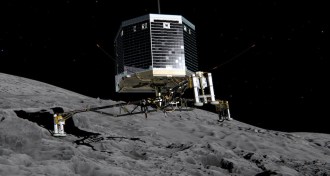 Planetary Science
Planetary SciencePhilae lander touches down on comet 67P
Rosetta’s lander Philae has reached the surface of comet 67P/Churyumov-Gerasimenko and is starting to do science.
-
 Astronomy
AstronomyPhilae lander is in free fall toward comet 67P
The Rosetta spacecraft has nudged its lander Philae off its back toward the surface of comet 67P/Churyumov-Gerasimenko.
-
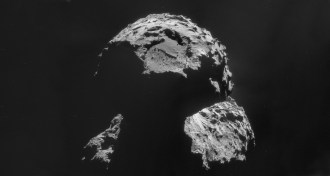 Astronomy
AstronomyRosetta’s countdown to comet landing has begun
Everything is on track for Rosetta mission scientists to attempt to set the Philae lander on the surface of comet 67P/Churyumov-Gerasimenko.
-
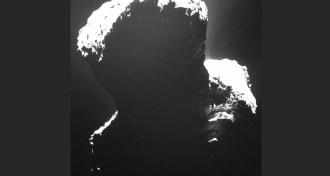 Planetary Science
Planetary ScienceRosetta prepares to let go of its comet lander
To date, everything is a go for scientists to attempt to land a robotic probe on a comet.
-
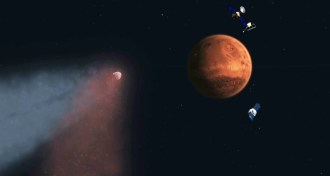 Planetary Science
Planetary ScienceComet delivered a showy meteor shower — on Mars
Comet Siding Spring dumped several tons of material into the Martian atmosphere that could have damaged NASA spacecraft.
-
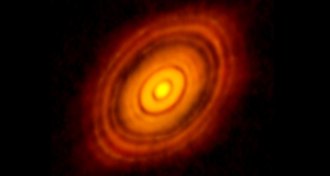 Astronomy
AstronomyInfant worlds carve gaps in planet-forming disk
A new image shows planets sweeping up gas and dust in a disk encircling the infant star HL Tau.
-
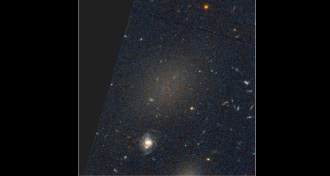 Astronomy
AstronomyNearly starless galaxies found in nearby cluster
Astronomers have found 47 galaxies with relatively few stars, something not predicted by any galaxy formation theories.
-
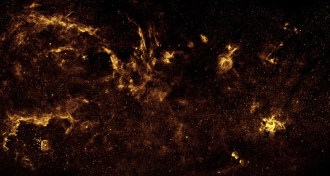 Cosmology
CosmologyGamma rays offer mixed messages on identity of dark matter
Conflicting results from Fermi telescope puzzle astronomers about dark matter’s true identity.
By Andrew Grant -
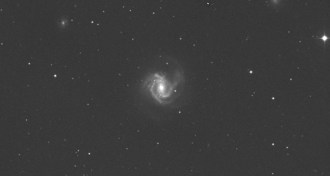 Astronomy
AstronomyAmateur astronomer spots supernova in nearby galaxy
Koichi Itagaki noticed the exploding star as a brilliant point of light in the spiral galaxy M61.
-
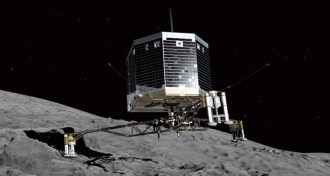 Astronomy
AstronomyRendezvous with a comet
On November 12, Rosetta mission scientists successfully completed the first-ever attempt to put a lander on a comet. See all Science News coverage of Rosetta and Philae's voyage to comet 67P/Churyumov-Gerasimenko.
-
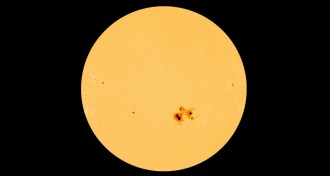 Astronomy
AstronomySupersized sunspot is largest in decades
A colossal sunspot large enough to be seen with the naked eye now blemishes the nearside of the sun, covering an area wide enough to comfortably fit 10 Earths side by side.
-
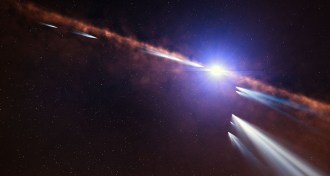 Astronomy
AstronomyComets caught zooming around nearby star
The young star Beta Pictoris hosts at least two families of comets, which might mirror our solar system’s past.